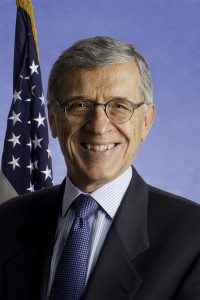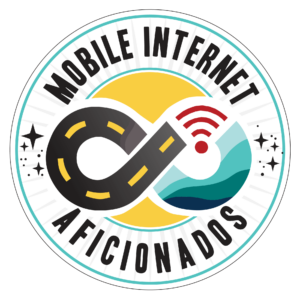
Federal Communications Commission (FCC) Chairman Tom Wheeler fired a parting shot at Verizon and AT&T yesterday - with his agency issuing an in depth analysis finding that the "free" video streaming service offerings from Go90 (Verizon) and DirecTV (AT&T) violate the FCC's network neutrality rules.
The network neutrality rules were designed to keep carriers from playing favorites on their networks, instead requiring them to treat all sites and apps equally.
Verizon and AT&T have claimed that other video services could pay to sponsor data usage and offer free streaming without it counting against monthly data limits, just like their own subsidiaries are able to do.
But in practice, the FCC found that there was a very unequal playing field that makes it effectively impossible for unaffiliated services like Netflix or Hulu to compete on these cellular networks.
The FCC investigation discovered that:
"... AT&T's "Sponsored Data" program and Verizon's "FreeBee Data 360" program present significant risks to consumers and competition. In particular, these sponsored data offerings may harm consumers and competition by unreasonably discriminating in favor of downstream providers owned or affiliated with the network providers. The Commission has long been concerned about the ability and incentives of network owners to thwart their downstream competitors' ability to serve consumers.
...
Unlike T-Mobile, which charges all edge providers the same zero rate for participating in Binge On, AT&T imposes hefty per-gigabyte charges on third parties for use of Sponsored Data. All indications are that AT&T's charges far exceed the costs AT&T incurs in providing the sponsored data service. Thus, it would appear that AT&T's practices inflict significant unreasonable disadvantages on edge providers and unreasonably interfere with their ability to compete against AT&T's affiliate, DirecTV. The structure of Verizon's FreeBee Data 360 program raises similar concerns. "
Verizon and AT&T both issued statements to Ars Technica objecting to the FCC's conclusion.
T-Mobile In The Clear

T-Mobile's Binge On has raised network neutrality concerns since it first launched, but the FCC has ruled that since T-Mobile is open to all video providers and it does not charge anyone to participate, Binge On is not playing favorites and is actually not in violation.
Here is what the report had to say on T-Mobile's practices:
T-Mobile does not charge edge providers or end users to participate in or use Binge On. From the consumer’s side, T-Mobile subscribers can easily enable or disable Binge On from their user settings and opt-out or opt-in to zero-rating as they choose. Although T-Mobile does establish technical standards governing video transmissions for edge providers who wish to participate in Binge On, it appears that many edge providers have been able to meet these technical criteria, with T-Mobile announcing that over 100 edge providers were participating in Binge On as of July 26, 2016. Given these facts, we find it difficult to envision that Binge On in the form the Bureau reviewed in 2016 could “unreasonably interfere with edge providers’ ability to make lawful content, applications, services, or devices available to end users.”
The 100+ participating video services accessible via T-Mobile is in sharp contrast to AT&T and Verizon, which only so far support free streaming from their own fully owned subsidiaries.
Enforcement Extremely Unlikely

Though the FCC staff review was firm in its conclusions that Verizon and AT&T are in violation of the current network neutrality rules, the incoming administration has made it clear that the network neutrality rules themselves are destined to be scrapped entirely - long before any enforcement action will ever get off the ground.
Republican FCC Commissioner Ajit Pai issued a statement basically calling on the industry to ignore the FCC report, saying that the ruling:
"Will not have any impact on the commission’s policymaking or enforcement activities following next week’s inauguration."
Though a new Republican FCC Chairman has not yet been nominated, every member of the transition team has been clear in expressing a desire to vastly dial back the FCC's regulatory role, or to even effectively eliminate the FCC entirely.
Things will certainly be changing - and we'll be keeping a close watch on how the changes at the FCC ultimately end up impacting RVers.
Further Reading:
Network Neutrality is a very complicated and politically charged issue, and there are well reasoned arguments to be made on all sides.
Here are a few good articles on the subject, if you'd like to know more:
- Understanding “Network Neutrality” – Implications For Mobile Internet (our first explanatory post on the issue in 2015)
- Appeals Court Backs FCC in Net Neutrality Fight, AT&T Plans Supreme Court Appeal (our major update on the issue last June)
- 2016 RV Mobile Internet Year in Review & Looking Forward Into 2017 (We have a section dedicated to changes with the FCC)
- Federal Register: Protecting and Promoting the Open Internet (the full FCC Network Neutrality ruling & dissent)
- The Oatmeal Explains Net Neutrality in a Comic (biassed, but funny)
NOTE: Comments that are focused on the politics of this issue are not appropriate here, and will be deleted. We are however eager to hear your thoughts on how the changes in Network Neutrality enforcement are likely to impact mobile internet users.







 Mobile Internet Resource Center (dba Two Steps Beyond LLC) is founded by Chris & Cherie of
Mobile Internet Resource Center (dba Two Steps Beyond LLC) is founded by Chris & Cherie of